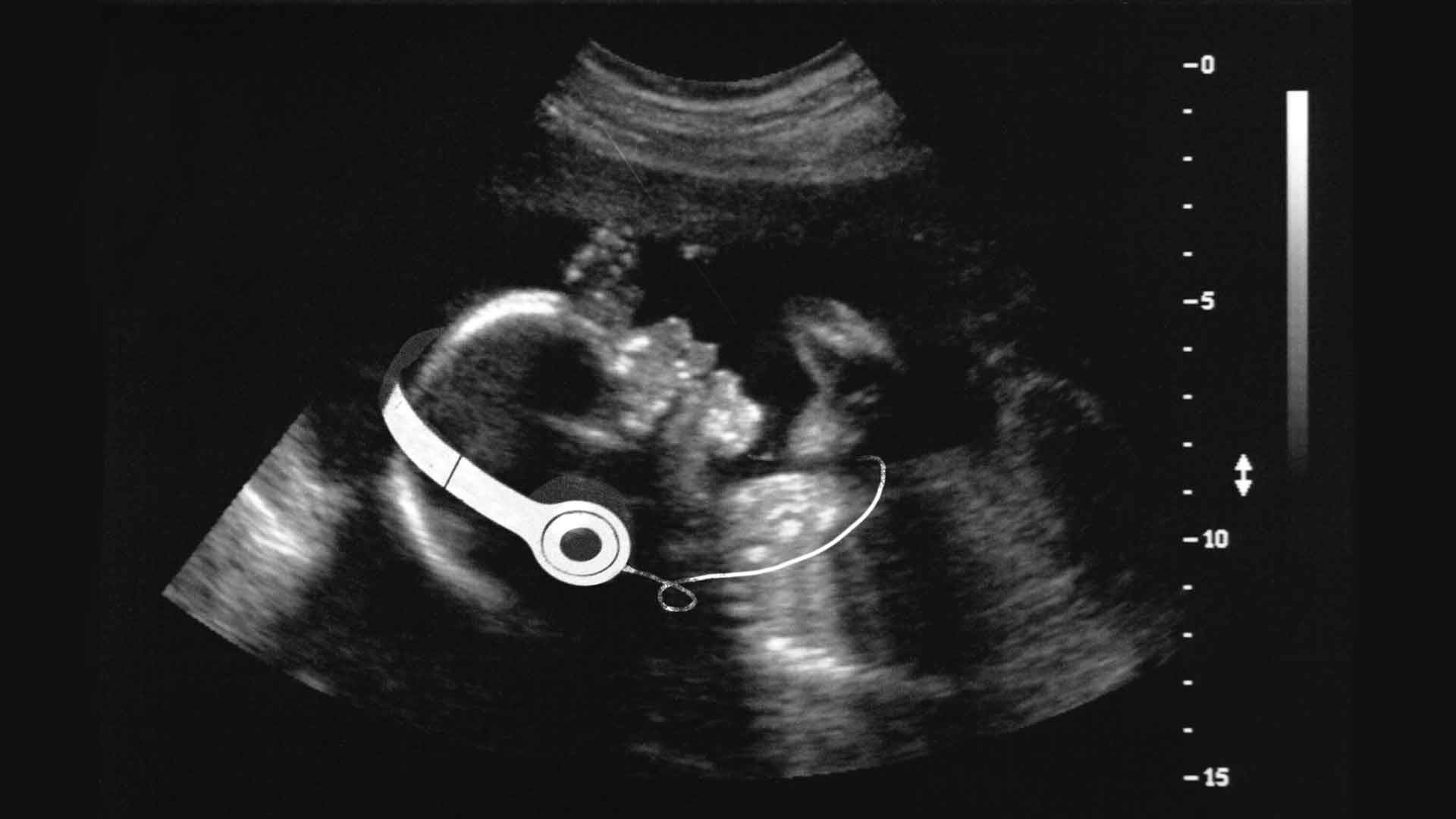Unborn babies prefer classical to pop, rock or world music, according to a new study. Scientists at a fertility clinic in Barcelona studied the mouth and tongue movements of more than 300 foetuses in response to the genres, and found that pieces such as Bach’s ‘Flute Sonata’ as well as Beethoven’s ‘Ode to Joy’ led to signals of contentment. ‘Bohemian Rhapsody’ by Queen scored lowest on the charts, a response that will surely change once the babies enter their student years and discover retro club nights.
Curiosity about the effects of classical music on foetuses is not a new phenomenon. Some years ago a musician friend of mine reported that he had been chiming a tuning fork over his wife’s pregnant belly – with her consent – in the hope that the practice may lead to the unborn child developing perfect pitch, the ability to recognise any note without context. This rare skill is coveted among musicians, although there is little knowledge about how it develops (not, it transpired, through the tuning fork therapy).
As well as wanting to foster an inclination for musical skill, there is a belief among some that playing classical music, particularly Mozart, can improve childhood development – and overall intelligence. Entrepreneurs have capitalised on the so-called ‘Mozart effect’ – it’s possible to buy special compilation albums to play to babies, even in utero. (One YouTube clip seems to have conflated the idea of ‘relaxing’ and ‘nurturing’ music and combined Mozart with watery sounds. I needed the loo after 20 seconds of listening, which suggests it might not be that relaxing if you have a small human bouncing around on your bladder.)
Entrepreneurs have capitalised on the so-called ‘Mozart effect’ – it’s possible to buy special compilation albums to play to babies, even in utero
While the positive effects of music are well documented, there is little, if any, evidence that listening to a Mozart piano concerto directly increases intelligence. What it does do is elicit changes in mood and arousal, which may in turn improve other types of reasoning, and therefore benefit overall functioning. It’s interesting that the latest research suggests a positive response to classical music can be witnessed so early in our development; with the range of activities now recommended during pregnancy – from acupuncture to yoga – could we start seeing concerts aimed at pregnant women?
A second recent study is less positive. Figures compiled and analysed by the Donne Women in Music project have shown that just 76 classical concerts among 1,445 performed around the world this year include at least one piece by a woman. A total of 3,524 musical works will be performed at those concerts, and, of those, 3,442 were written by men and only 82 (about two per cent) were written by women. The project, curated by soprano Gabriella Di Laccio, has set up an online database of more than 4,000 women composers to support programmers and promoters in making informed choices.
Let’s take our lead from the National Youth Orchestra of Great Britain, which set the standard when it performs new works by both Errollyn Wallen and Ben Parry alongside pieces by Britten, Rachmaninov, Nico Muhly and others, as part of the Snape Proms (August 27). For an overlooked historical composer, try Lili Boulanger, who died 100 years ago at the untimely age of 24. The City of Birmingham Symphony Orchestra performs her Psalm 130 Du fond de l’abîme during Prom 44 (August 15).









